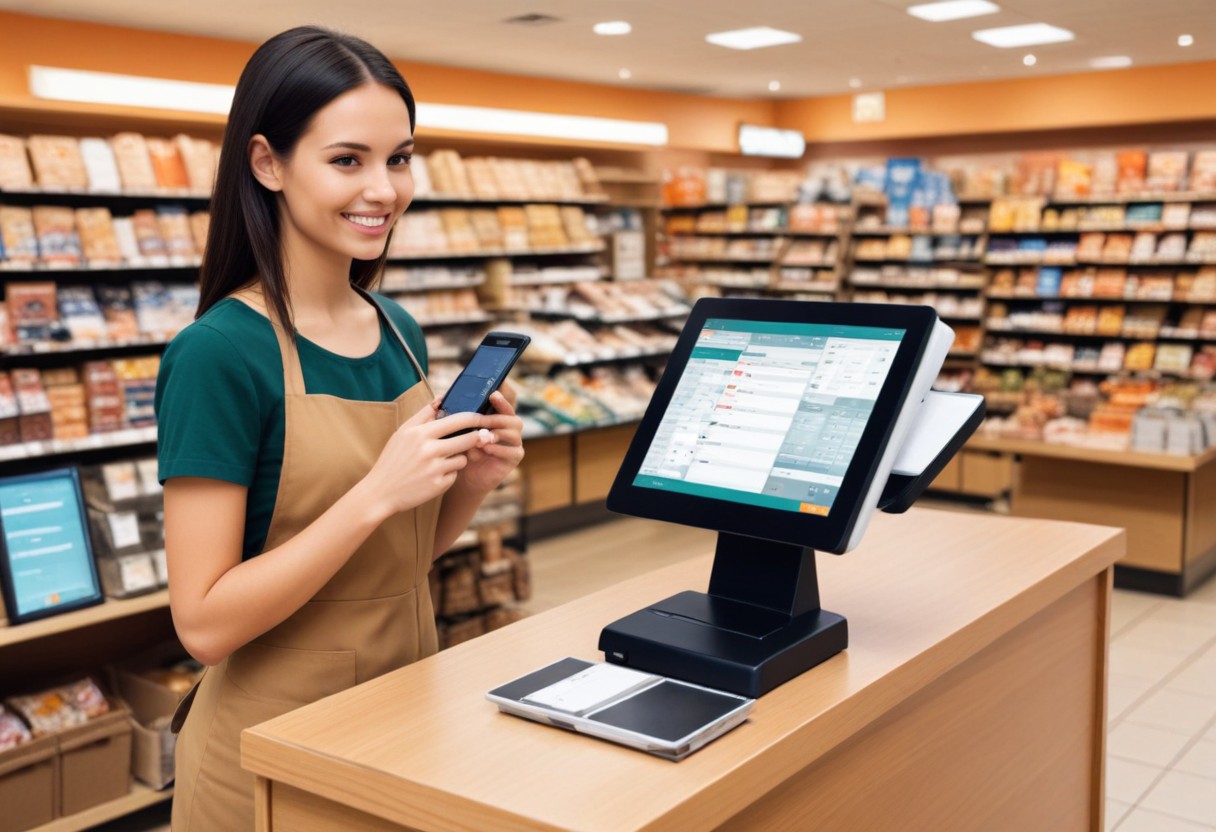For decades, Point of Sale POS was simply a small cash register hidden behind a counter. In the current fast-paced business world, it has evolved into an even more effective tool. Intelligent, flexible and mission-critical platform which supports not just transactions but the whole customer experience.
The way that consumers interact with companies and restaurants has drastically changed. They demand speed, flexibility and a personal touch no matter the field. The latest POS systems are built to do much more than bring in sales. They connect all aspect of an organization to one system that is streamlined.

POS Systems as Business Intelligence Hubs
The term point of sales has evolved. No longer is it merely about completing a purchase it’s about gathering data, optimizing operations, and enhancing customer relationships. Point-of-sale POS system of the present does more than take payments. It aids in analyzing the amount of inventory and assess employee performance. It provides actionable data on sales as well as identifying buying patterns for different seasons or customer segments.
Think about a small shop that is using a retail point-of-sale. Instead of manually counting stock or guessing which styles are popular or what trends are in fashion, the POS platform automatically tracks top sellers, and sends alerts about low stock, and even suggests the reordering of items based on current trends. Cloud-based connectivity lets the same owner to check the performance of their store daily when they are away on vacation.
Industry-Specific Flexibility
One of the key features of modern POS system is their flexibility across different vertical markets. At one end you will find restaurants that require real-time order routing to kitchens, tip tracking, and payments at tables. On the other hand, beauty salons are dependent upon appointment scheduling, customer history, and package management. The most effective point-of-sale POS solutions cater to these requirements and requirements, which are different.
What unites these businesses, but, is the desire for simplicity on the front and intelligent automation at the back. Bars might prefer fast tap-to-pay machines, while hardware stores are focused on scanning barcodes and inventory synchronization across departments. A great POS system will adapt to each without friction.
Payment Security and Processing Integration
Security is not an option it’s a requirement. Businesses that accept digital or card transactions, need to safeguard their customers’ data. Trustworthy point of sale POS systems today are equipped with payment integrations that support secure, encrypted processing from end-to-end with trusted brands like Chase, Moneris, and First Data.
But the integration goes deeper than security. The integration is not only about safety. It’s also about speed. A unified system combining payment processing with sales tracking helps businesses close faster, reconcile more accurately, and get rid of the stress of the end-of-day.
Expanding your business by it but not against it
Small-sized businesses, especially tend to not consider the importance of scaling. Most businesses begin with a basic set-up, and then find out that it can’t handle numerous locations, loyalty schemes, or online order. Modern POS systems are designed to grow with the company, from a sole owner to the level of a franchise.
Retailers, specifically, have the advantage of retail POS systems that link in-store purchases with e-commerce platforms. This seamless integration ensures that inventory is up-to-date throughout the day, shoppers have a better shopping experience while owners also are able to save time as they do not have to switch between different systems.
Conclusion: Smarter Sale Begins with the Point of Sale
Point of sale POS has evolved from being a mere transaction tool. Nowadays, it’s an integral part of the way businesses learn and grow. Companies who invest in a customized smart, secure, and intelligent point of sale technology are not only improving their checkout processes as well as laying the digital foundation for success in the future.
With increasing expectations from customers businesses shouldn’t think of the POS as a secondary consideration. In many ways, the actual core of a modern-day business is the point where sales are made.